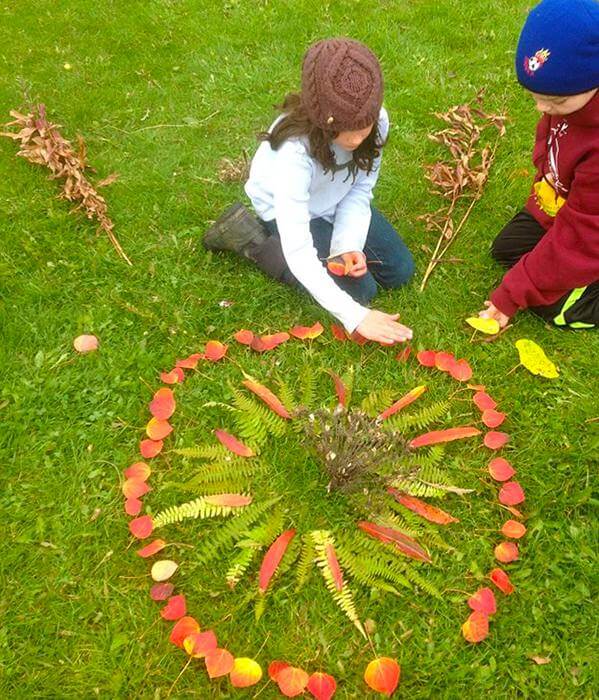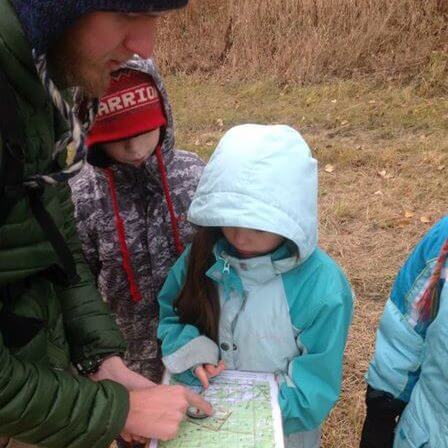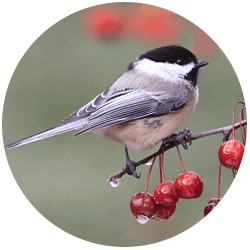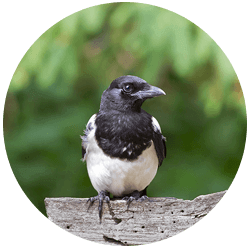Kellogg F.I.E.L.D. School
Every Graduate Student spends a portion of their first semester in the MSOEE program teaching at Kellogg F.I.E.L.D. School.
A one credit practicum is integrated with the Curriculum Design course to provide students the opportunity to tie theory to application immediately. This practicum is typically reimbursed as a teaching assistantship to help cover the investment made by the student. It also helps our new graduate students meet our local community of parents and kids and immerse themselves in the kind of active learning they came here to experience.
Kellogg F.I.E.L.D. School Mission

The Goal
The goal is to offer an outdoor-based enrichment program that will create holistic learners that pursue interests and solve problems by looking through a wide-angle lens, using scientific inquiry, historical understanding, cultural awareness and linguistic reflection. The lessons we offer are interdisciplinary in nature.
 Kellogg F.I.E.L.D. School Standards
Kellogg F.I.E.L.D. School Standards
KFS standards serve as rigorous goals for instructing and learning. They have been gathered from various state and national environmental education standards and customized to fit our local needs. Contemporary society is placing immense academic demands on learners. Clear statements about what LFS participants should know and be able to do are essential to ensure that our program offers participants a foundation for environmental literacy.
KFS has identified the following educational benchmarks. These learning goals should be met across four sessions.
- Environmental Sensitivity: Learners develop sensitivity for the natural environment.
- Nature Studies: Learners develop a foundation for ecological concepts.
- Outdoor Pursuits: Learners make healthy lifestyle choices by participating in outdoor physical activities.
- Farms and Food: Learners appreciate the value of nutritious food and are able to trace the progression from “farm to fork.”
- Our Shared Alaskan Experience: Learners explore the unique cultural and geographical aspects of our local and regional community.
 Mat-Su Borough School District Standards
Mat-Su Borough School District Standards
As a service to families and a measure of instructional quality, lessons are aligned to Alaska State scope and sequence standards. With our focus of experiential education, Kellogg F.I.E.L.D. School strives to make learning relevant to life, combining many disciplines to explore a given concept.
Kellogg F.I.E.L.D. School Classes
 Chickadees
Chickadees
Hands-on, thematic environmental education.
Chickadees discover ecological principles using sensory awareness activities and through investigations of our local natural and built environments. With an emphasis on seasonal change, students build interdisciplinary concepts and skills based on what they do, see and hear and taste.
The Chickadees (age 5) meet Monday, Wednesday & Friday from 9:30 to 12:30.
 Magpies
Magpies
Project-based as well as place based environmental education.
Magpies work collaboratively to complete and present projects, emphasizing relevant, local investigations. This approach involves the student in decision-making and problem-solving processes and encourages both teamwork and individual strengths. Community ties are often strengthened with field trips and guest speakers. One project may last the entire session.
The Magpies (ages 6,7) meet Monday, Wednesday & Friday from 9:30 to 12:30. Tuesday & Thursday from 9:30 to 2:00.
 Ravens
Ravens
Project based environmental education.
Ravens investigate relevant local environmental issues within a ranging complexity of topics. Project based learning requires interdisciplinary group interactions and problem solving. These long term projects offer the opportunity to engage learners in higher order thinking skills and objectives. This approach develops nuanced attitudes and behaviors towards environmental stewardship. Ravens will identify and seek to work in cooperation with state agencies and private organizations within our community.
The Ravens program ( ages 8,9) will meet on Tuesday & Thursday from 9:30 to 2:00.
 Eagles
Eagles
Project based environmental education.
The Eagles will be investigating project based and relevant local environmental issues within a ranging complexity of topics. The Eagles class will compare closely to the Ravens program by working on long term projects and offering the opportunity to engage learners in higher order thinking. Eagles may identify and seek to work in cooperation with state agencies and private organizations within our community.
The Eagles program ( ages 10,11) will meet on Monday’s from 9:30 to 2:30.
 Owls
Owls
Project based environmental education.
Louise’s Farm School is offering an Owls class based on expressed interest. This Owls class is for learners who are 12-13 yrs old. The Owls will be investigating relevant local environmental issues within a ranging complexity of topics. The Owls program will compare closely to that of the Ravens and Eagles project based programs. These classes will differ in the topics explored from program to program. Owls will be working with long term projects that offer the opportunity to engage learners in higher order thinking.
The Owls program (age 12, 13) will meet on Wednesday’s from 9:30 to 2:30.

 Kellogg F.I.E.L.D. School Standards
Kellogg F.I.E.L.D. School Standards Mat-Su Borough School District Standards
Mat-Su Borough School District Standards Chickadees
Chickadees Magpies
Magpies Ravens
Ravens Eagles
Eagles Owls
Owls